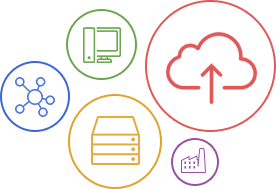In today's hyper-connected digital landscape, businesses need to operate 24/7 to stay competitive and meet their customers' ever-growing expectations. As a result, the importance of reliable IT systems cannot be overstated. Any downtime or disruption can lead to lost productivity, unsatisfied customers, and even reputational damage. Therefore, ensuring high availability, fault tolerance, and redundancy in IT infrastructure is a top priority for businesses. This article delves into strategies and best practices to maximize IT system reliability for 24/7 business operations.
Robust Hardware
Investing in quality hardware is the first step toward maintaining a reliable IT system. High-quality servers, data storage devices, and networking equipment are less likely to fail and can handle higher workloads. Look for hardware that comes with built-in fault tolerance features. For example, servers with redundant power supplies can continue operating even if one power supply fails.
However, even the most reliable hardware can fail. Therefore, it's essential to have redundant hardware that can take over in the event of a failure, ensuring that your business operations can continue uninterrupted.
Proactive Monitoring
Proactive monitoring of IT systems is another crucial aspect of maintaining high reliability. Monitoring tools can track system performance and health, alerting you to potential issues before they escalate into serious problems.
These tools can track various metrics such as CPU usage, memory usage, disk space, network bandwidth, and more. By keeping an eye on these metrics, you can identify unusual patterns or spikes in usage that may indicate an underlying issue. Addressing these issues proactively can prevent downtime and maintain system reliability.
Backup Systems
Even with the best hardware and proactive monitoring, things can still go wrong. That's where backup systems come into play. Regularly backing up your data ensures that you can restore your systems to a functional state in the event of failure.
Backup systems should be comprehensive, covering all critical business data, and they should be tested regularly to ensure they work as expected. Moreover, backups should be stored off-site or in the cloud to protect against physical disasters like fires or floods that could damage onsite backups.
Also Read: Securing Your Data: Efficient Backup and Recovery Plans for Businesses
Disaster Recovery Plan
"In the event of a major system failure, a disaster recovery plan is your final line of defense. This plan should outline the steps to be taken to restore your IT systems to normal operation as quickly as possible."- Emil Isanov
A good disaster recovery plan includes detailed information about how to recover data from backups, how to switch to redundant hardware, and how to communicate with stakeholders during a disaster. This plan should be tested regularly to ensure that everyone knows their roles and responsibilities and that the plan works as expected.
Also Read: Why is backup and disaster recovery planning important?
Conclusion
Reliable IT systems are an integral part of 24/7 business operations. By investing in robust hardware, implementing proactive monitoring, ensuring regular backups, and having a comprehensive disaster recovery plan, businesses can maximize their IT system reliability.
While these measures may require significant investment, the cost of downtime can be far greater. A robust, reliable IT infrastructure not only provides peace of mind but also delivers tangible business benefits, including increased productivity, improved customer satisfaction, and a competitive edge in today's digital landscape.
.png)
Facebook: facebook.com/etech7
Twitter: twitter.com/etech7
Instagram: instagram.com/etech_7/
Blog: blog.etech7.com/














